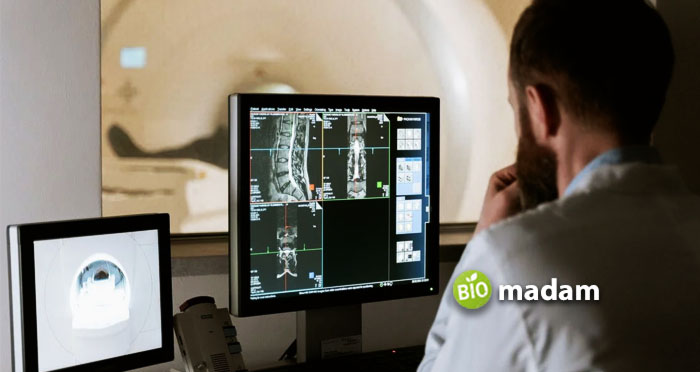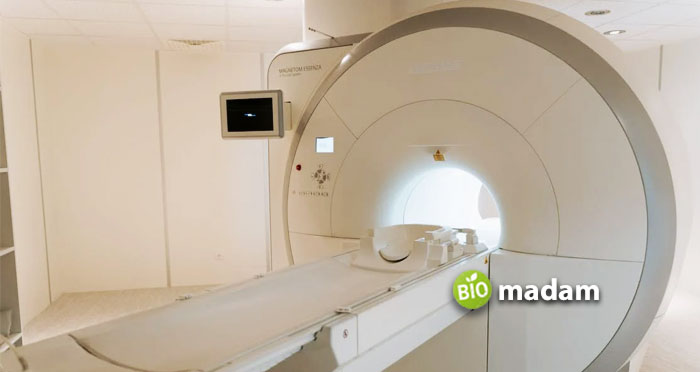Recently updated on October 17th, 2023 at 11:26 am
Oncology exams are a vital part of diagnosing and treating cancer. They can help doctors determine the type of cancer you have, how far it has spread, and what treatment options are available to you. In this health guide, we will discuss everything you need to know about oncology exams. We will cover the different types of exams, what to expect during your appointment, and post-exam care. We hope this information helps you feel more prepared for your oncology examination!
What is an Oncology Examination and What are its Purposes?
Since an oncology examination involves a thorough check-up of the body to evaluate any signs or symptoms related to cancer, it is an important part of cancer care. Oncologists use these examinations to diagnose and monitor existing cancers as well as detect potential new ones.
What Happens During an Oncology Exam?
During an oncology exam, a doctor will begin by asking the patient about their medical history and any changes in health they have noticed. The doctor will then perform a physical examination, typically including an inspection of the skin, lymph nodes, abdomen, and other body systems for signs or symptoms that may be associated with cancer. Depending on the area being examined and the patient’s individual risk factors, additional tests such as blood tests, CT scans, or biopsies may also be requested.

What Types of Cancer can be Detected During an Oncology Exam?
There are many different types of cancers that can potentially be diagnosed through an oncology exam. These include breast cancer, colorectal cancer, prostate cancer, skin cancer, lung cancer, and many others. With early detection and proper monitoring, oncology examinations can be an effective way to detect and treat cancers in the early stages.
What are the Benefits of an Oncology Exam?
Oncology exams provide a variety of potential benefits to the patient. Early detection and treatment of cancer can lead to better health outcomes, improved quality of life, and a higher chance of survival. Regular exams also allow oncologists to monitor the progress of existing cancers and coordinate appropriate treatments in order to provide the best possible care for the patient.
What is the Importance of Follow-Up Care After an Oncology Exam?
Follow-up care is a crucial component of cancer care and is important for both the patient’s physical health as well as their emotional well-being. Follow-up exams allow for further monitoring of any detected cancers, as well as allowing for any potential new ones to be detected early. Additionally, it provides patients with the opportunity to discuss any questions or concerns they may have with their oncologist, which can be beneficial for providing peace of mind and a source of support.
Who Should undergo Oncology Examinations and when Should they be Done?
If you or a loved one has been diagnosed with cancer, oncology examinations are an important part of the treatment process. Oncology exams help doctors monitor the progress and effectiveness of treatments, as well as detect any potential changes or recurrences in the cancer cells. Generally speaking, anyone who has received a diagnosis of benign or malignant tumor should have at least one oncology exam a year. In addition, those with a family history of cancer may want to consider having more frequent exams for early detection and prevention.
How are Oncology Examinations Conducted, and What Kind of Equipment is used During the Process?
In an oncology examination, a patient is typically asked to lie down on an imaging table. The doctor or radiographer then uses specialized imaging equipment such as X-rays, ultrasounds, and CT scans to take pictures of the inside of the body. These images can be used to help diagnose cancer and determine the best course of treatment. Furthermore, there are treatment centers like Southwest women’s oncology center that emphasize giving expertise and compassion to each patient respectively. So, finding a care provider who is knowledgeable and has a team of specialists to provide the best possible care for the patient should be a top priority.
What Happens After an Oncology Examination?
After an oncology examination, your doctor will review the images and make a diagnosis. Depending on the results, they may also recommend further treatment, such as chemotherapy or radiation therapy. Additionally, your doctor may refer you to a specialist for more detailed care and advice. Finally, they will monitor your progress over time to make sure the treatment is working. It is important to follow all of your doctor’s recommendations and keep them updated about changes in your condition. Doing so can help ensure a successful outcome.
What can Patients Expect Following an Oncology Examination, and How Long will it Take for Results to Come Back?
In general, the process of receiving results from an oncology examination may take anywhere from a few days to several weeks, depending on the complexity of the tests conducted. Once your doctor has received the results, you will either be given them in person or contacted via telephone with their findings. Your doctor will then discuss a plan of action based on what they have discovered. It is important to follow any advice given by your doctor, as this can mean the difference between life and death in some cases. After an oncology examination, it is likely that your doctor will want you to come back for regular check-ups to make sure that no new problems have arisen or that existing ones are not worsening over time.
Following an oncology examination, it is also highly recommended that you keep active and maintain a healthy lifestyle in order to reduce the risk of further illness or complications from existing conditions. Eating healthily, exercising regularly, and making sure to get enough rest are all important ways to stay healthy after an oncology exam. Additionally, if your doctor has prescribed any medications or treatments, it is important to follow their instructions closely in order to ensure the best possible outcome.

In the end, oncology exams are an important part of a comprehensive health plan. Depending on the type of exam, they can provide a crucial early warning for cancer or other health problems. They should not be taken lightly and patients should be aware of the risks involved in having any kind of diagnostic test. It is wise to discuss all options with your doctor before making any decisions. Furthermore, make sure to ask questions if you do not understand any aspect of the process. With these things in mind, oncology exams can be a valuable tool for assessing your health and staying aware of potential risks or complications. Remember that knowledge is power when it comes to your health and well-being!

Hi, they call me Jenna, and I am also known for achieving a gold medal during my Ph.D. in science life. I always had a dream to educate people through my utmost writing hobby. So, I chose this blogging path, and Biomadam gave me this opportunity to present for them. I now stand to entertain you. Continue reading my articles & discuss if you’ve any confusion through the comment section below.

